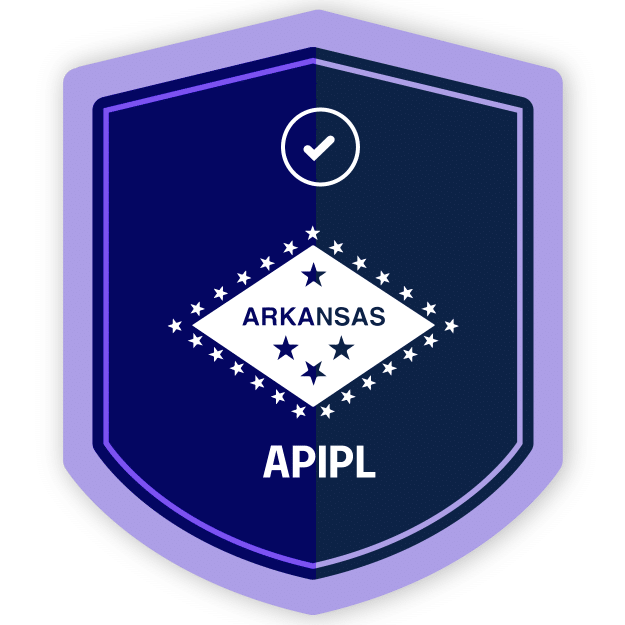
Guide to
Arkansas Personal Information Protection Act
The Arkansas Personal Information Protection Act requires organizations that collect Personal Information (PI) to use reasonable security safeguards to protect such information. The law also requires that in the event such information is compromised, the organization must notify the affected individuals as soon as possible but no later than 45 days after the discovery of the breach. If the breach of Personal Information (PI) affects more than 1,000 people, the organization must also disclose the breach to the state attorney general.
How does the Arkansas Personal Information Protection Act define “personal information”?
The law defines “Personal Information” to include “An individual’s first name, or first initial and his or her last name, in combination with any one or more of the following data elements when either the name or the data element is not encrypted or redacted:
What businesses are subject to the Arkansas Personal Information Protection Act?
The law applies to “any person, business or state agency (collectively, Entity) that acquires, owns, or licenses computerized data that includes PI.” It covers any organization maintaining information on Arkansas residents, regardless of whether it operates within the state.
Key requirements of the Arkansas Personal Information Act:
The covered entity “shall disclose any breach of the security of the system following discovery or notification of the breach of the security of the system to any resident of AR whose unencrypted PI was, or is reasonably believed to have been, acquired by an unauthorized person.”
Disclosure of the breach needs to be made “as soon as possible, but no later than 45 days after the discovery of the breach.”
If the entity maintains electronic data that includes PI that it doesn’t own, it must notify the owner of the information of any breach of the security of the system immediately following discovery if the PI was, or is reasonably believed to have been, acquired by an unauthorized person.
The entity must retain a copy of the report on the details of the breach and any supporting documentation for five years from the date the breach was determined.
Who enforces the regulation?
The Arkansas state attorney general has the authority to enforce the law. The law does not grant individuals a private right of action.
Arkansas Personal Information Protection Act: Frequently Asked Questions
Hyperproof makes Arkansas Personal Information Protection Act compliance simple

Ready to see
Hyperproof in action?









